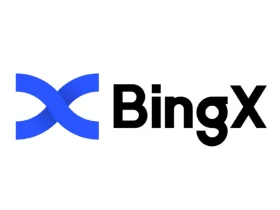In the ever-evolving landscape of financial markets, staying ahead of the curve is crucial for intelligent trading strategies. With the advent of big data and advanced analytics, traders now have access to a powerful tool that can provide valuable insights – market sentiment analysis. This article explores the fascinating world of market sentiment analysis using social media and news sources, shedding light on how it can be leveraged for intelligent trading strategies.
Introduction
Trading in financial markets has always been a blend of art and science. While traditional analysis methods like fundamental and technical analysis play a significant role in decision-making, there’s another factor that can move markets – sentiment. Market sentiment refers to the overall feeling or emotion of market participants towards a particular asset or market as a whole. It’s often an amalgamation of opinions, beliefs, and emotions that influence trading decisions.
Understanding market sentiment is critical because it can drive significant price movements. When traders are optimistic, they buy, pushing prices higher. Conversely, when pessimism prevails, selling intensifies, causing prices to drop. Recognizing these sentiment shifts and incorporating them into intelligent trading strategies can be a game-changer.
Harnessing the Power of Market Sentiment
Social Media as a Sentiment Gauge
The rise of social media platforms like Twitter, Facebook, and Reddit has given traders unprecedented access to a wealth of information and opinions. Individuals now openly share their views on various assets, from s and cryptocurrencies to commodities. This real-time, unfiltered stream of data can be a goldmine for traders.
- Real-time Insights: Social media provides real-time updates on breaking news, financial events, and the sentiments of thousands of users. This allows traders to gauge market reactions instantly and make informed decisions.
- Sentiment Analysis Tools: There are specialized tools and algorithms designed to analyze social media content. These tools can sift through vast amounts of data, identify keywords and trends, and provide sentiment scores, helping traders gauge market sentiment accurately.
News Media and Market Sentiment
News outlets play a significant role in shaping market sentiment. Positive or negative news stories about a company, industry, or the global economy can sway investor sentiment and, in turn, impact asset prices. Here’s how news media contributes to market sentiment analysis:
- Breaking News Alerts: Traders can set up alerts for specific keywords or topics related to their assets of interest. This ensures that they are promptly notified of any news that could affect their trading decisions.
- Expert Opinions: Financial news channels often invite experts and analysts who provide insights and forecasts. Traders can use these expert opinions as additional input when analyzing sentiment.
Challenges
While market sentiment analysis offers significant advantages, it’s not without challenges and risks:
- Noise and Misinformation: Social media platforms can be noisy, with misinformation and rumors spreading rapidly. Traders need to filter out irrelevant or false information to get an accurate picture of sentiment.
- Overreliance: Relying solely on sentiment analysis can be risky. It should complement, not replace, traditional analysis methods to create well-rounded trading strategies.
Conclusion
In the realm of intelligent trading strategies, market sentiment analysis using social media and news sources is a powerful tool that should not be underestimated. It provides traders with real-time insights into the emotions and opinions of market participants, allowing them to make informed decisions. By harnessing this data effectively and understanding its limitations, traders can enhance their ability to execute successful trades and stay ahead of the market curve in 2023 and beyond. Remember, the key to intelligent trading strategies lies in the balance between data-driven insights and time-tested analysis methods.







